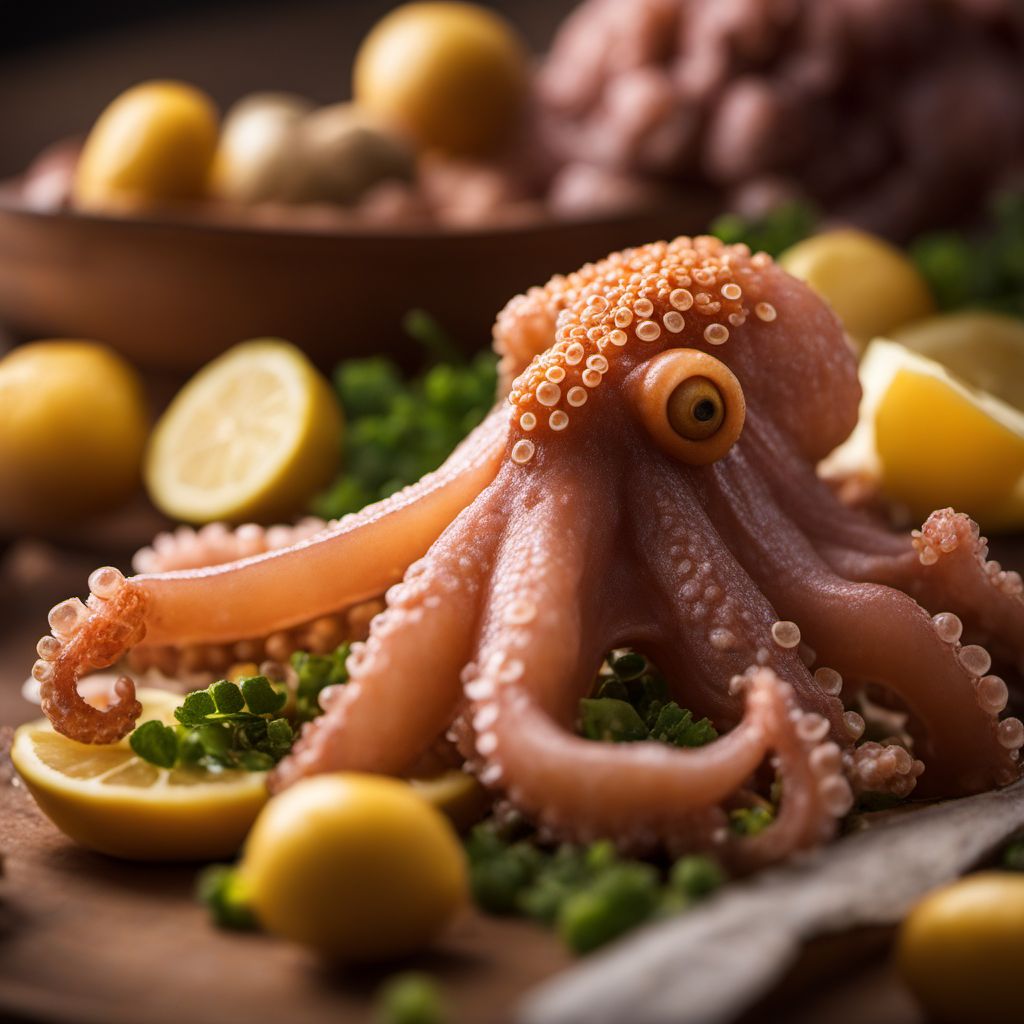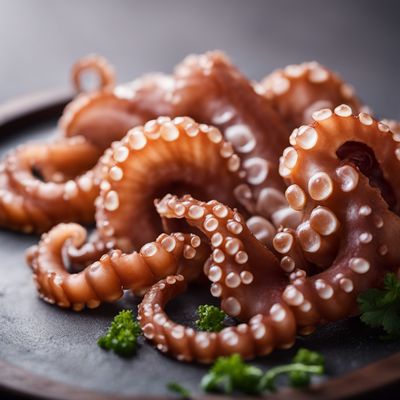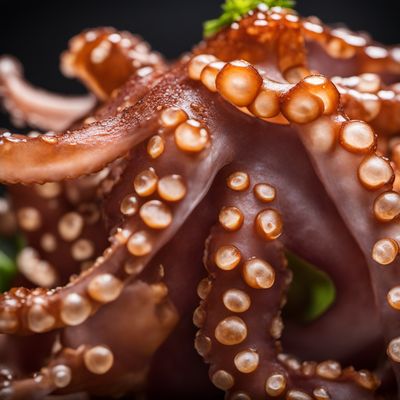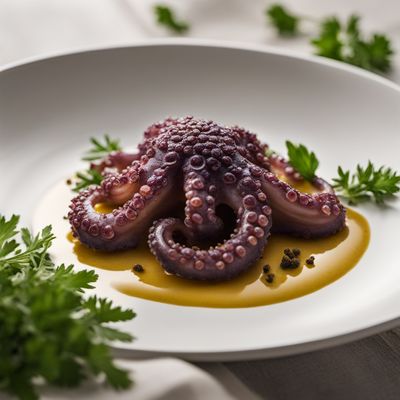
Ingredient
Octopuses
The Enigmatic Delicacy: Unraveling the Secrets of Octopuses
Octopuses are cephalopods with a soft body and eight arms lined with suction cups. They have a distinct head with large, intelligent eyes and a beak-like mouth. Their bodies are typically reddish-brown in color, but can vary depending on the species. Octopuses have a firm yet tender texture and a delicate flavor that is often described as sweet and briny. When cooked properly, they become tender and succulent, making them a prized ingredient in many cuisines.
Origins and history
Octopuses have a rich history in various cultures around the world. They are believed to have originated in the waters of the Mediterranean Sea and have been a staple in Mediterranean cuisine for centuries. Octopuses have also played a significant role in Greek mythology, with tales of their intelligence and cunning. Today, they are widely consumed in coastal regions across the globe, including Asia, Europe, and the Americas.
Nutritional information
Octopuses are a low-calorie and nutrient-rich ingredient, packed with protein, vitamins, and minerals. They are a good source of iron, calcium, and vitamin B12, while being low in fat and carbohydrates.
Allergens
Octopuses are known to cause allergic reactions in some individuals, particularly those with shellfish allergies.
How to select
When selecting octopuses, look for specimens with firm, intact bodies and bright, clear eyes. Avoid octopuses with a strong fishy odor or slimy texture, as these are signs of spoilage. Fresh octopuses should have a vibrant color and a slightly sweet aroma.
Storage recommendations
To maintain the freshness of octopuses, store them in a sealed container or wrapped tightly in plastic wrap in the refrigerator. They are best consumed within 1-2 days of purchase.
How to produce
Octopuses are typically caught in the wild, but they can also be farmed in controlled environments. However, octopus farming is a complex process that requires specialized knowledge and equipment.
Preparation tips
Before cooking, octopuses should be cleaned thoroughly to remove any residual ink or sand. They can be prepared in various ways, including boiling, grilling, or braising. To achieve a tender texture, octopuses can be tenderized by freezing them before cooking or by simmering them with a cork or onion. When grilling, marinating the octopus in olive oil, lemon juice, and herbs can enhance its flavor.
Substitutions
Squid or calamari can be used as substitutes for octopuses, as they share a similar texture and flavor profile.
Culinary uses
Octopuses are commonly used in Mediterranean and Asian cuisines. They are often grilled, braised, or used in seafood stews and salads. In Mediterranean cuisine, octopuses are a popular ingredient in dishes like octopus carpaccio, octopus salad, and grilled octopus with lemon and herbs. In Asian cuisine, they are commonly used in stir-fries, sushi, and takoyaki (Japanese octopus balls).
Availability
Octopuses are commonly available in coastal regions around the world, including countries such as Greece, Spain, Italy, Japan, and South Korea.



